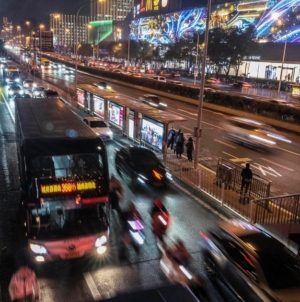-
China allocates billions to local governments to tackle hidden debt issues. - 13 mins ago
-
Woman Tries on Old Jeans After Losing 60 Pounds in Four Months - 16 mins ago
-
How a Trump term could impact California’s LGBTQ+ students, financial aid - 24 mins ago
-
Country star Zach Bryan’s ex accuses him of emotional abuse, claims she was offered $12M to sign NDA - 29 mins ago
-
Ravens beat Bengals 35-34, Do the Bengals have any hope? | Breakfast Ball - 48 mins ago
-
Florida’s Largest Insurer Requests to Raise Premiums by $700 a Year - 57 mins ago
-
Israel’s Netanyahu appoints new ambassador to United States - about 1 hour ago
-
Opinion: I thought I had my L.A. cycling commute down. I’d missed the obvious - about 1 hour ago
-
Trump victory boosts book sales from “The Handmaid’s Tale” and “1984” to “Hillbilly Elegy” - about 1 hour ago
-
2024 College Football picks Week 11: Back Oregon to start fast, Iowa to cover - 2 hours ago
Justice minister: Prevailing views on war, immigration, family to be decided at EP election
The June 9 European parliamentary elections will be instrumental in deciding which views prevail on issues such as the war in Ukraine, immigration and families, the justice minister said in Budapest on Thursday.
Bence Tuzson told a conference organised by the National Media Association and the conservative think-tank Alapjogokert Kozpont that the EU was seeing the battle “between the progressive and the sovereigntist world… We will have to protect the original, fundamental meaning of Europe” in which all states were seen as equal.
At the same time, he said endeavours were under way to “eliminate nations and wipe the concept out in the EU … so the EU will not be an alliance of independent nations but a homogenous mass … where the open society can be introduced and the concept of families redefined,” he said.
Hungary, “which we see as an island” in Europe, sees those matters differently from the majority of the bloc, he said. The difference is rooted in Hungary’s history, he said. “We really feel what it means when our nation and culture is threatened.”
Barna Pal Zsigmond, a state secretary of the ministry for European affairs, said that despite the differences, the government was committed to “a European alternative”.
“The EU has an easily indetifiable enemy: Brussels bureaucracy,” Zsigmond told a panel discussion. Rather than finding “good solutions” to the issues brought on by recent crises, “they strengthened their own positions”, he said.
On the subject of the war in Ukraine, “a left-liberal ideological bubble has been created”, he said, adding that dialogue was needed instead.
Regarding EU infringement procedures launched against Hungary, Zsigmond said the country had always implemented the recommended remediation measures. “Our place is in Europe, and we must find solutions to make the EU better,” he said.
Zsigmond said he hoped that right-wing European parties would emerge strengthened from the elections.
Put to him that the EU was more ready to represent the rights of sexual minorities than indigenous minorities, Zsigmond called on the EU to establish legal norms on the matter, especially in view of the one million signatures collected by the Minority SafePack citizens’ initiative.
Regarding migration, Zsigmond said that “NGOs whose activities are aimed at dismantling traditional values” were trying to influence EU decision-making.
Source link






























